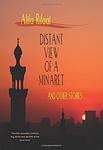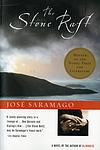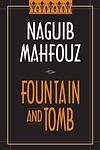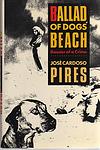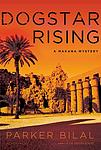The Greatest Portuguese, Egyptian "Fiction" Books Since 1970
Click to learn how this list is calculated.
This list represents a comprehensive and trusted collection of the greatest books. Developed through a specialized algorithm, it brings together 300 'best of' book lists to form a definitive guide to the world's most acclaimed books. For those interested in how these books are chosen, additional details can be found on the rankings page.
Genres
Countries
Date Range
Reading Statistics
Click the button below to see how many of these books you've read!
Download
If you're interested in downloading this list as a CSV file for use in a spreadsheet application, you can easily do so by clicking the button below. Please note that to ensure a manageable file size and faster download, the CSV will include details for only the first 500 books.
Download-
1. The Book of Disquiet by Fernando Pessoa
"The Book of Disquiet" is a posthumously published collection of thoughts and musings of a solitary dreamer, who is a Lisbon-based bookkeeper. The book delves into the mind of a man who is discontented with his mundane life and finds solace in dreaming and writing. The narrative is a profound reflection on life, solitude, and the nature of humanity, filled with philosophical insights and poetic language. The protagonist's introspective journey and his struggles with existential despair make it a seminal work in the genre of literary modernism.
-
2. Woman at Point Zero by Nawal El Saadawi
"Woman at Point Zero" is a powerful novel about a woman named Firdaus who, after a life filled with hardships and abuse, finds herself on death row in an Egyptian prison. The narrative explores her life story, from her childhood of poverty and genital mutilation to her experiences with domestic violence, prostitution, and finally murder. Through her journey, the book offers a profound critique of patriarchal society and the systemic oppression of women.
-
3. The Year of the Death of Ricardo Reis by José Saramago
The novel is a metaphysical narrative about a doctor named Ricardo Reis who returns to Lisbon, Portugal after learning about the death of his friend. He finds himself in a society on the brink of dictatorship, and as he navigates through his daily life, he encounters his deceased friend's ghost and a hotel maid with whom he begins a love affair. The book explores themes of identity, love, and the nature of reality, set against the backdrop of political turmoil.
-
4. Blindness by José Saramago
In this dystopian novel, an unexplained epidemic of "white blindness" sweeps through an unnamed city, causing chaos and panic. The government responds by quarantining the afflicted in an abandoned mental hospital, where conditions quickly deteriorate into violence and squalor. Amid the despair, one woman mysteriously retains her sight and guides a small band of the blind, including her husband, through the harrowing ordeal. The novel explores themes of loss, human nature, and the fragility of civilization.
-
5. Baltasar and Blimunda by José Saramago
"Baltasar and Blimunda" is a historical love story set in 18th century Portugal. The narrative follows a maimed soldier, Baltasar, and a young clairvoyant woman, Blimunda, as they navigate the hardships of life during the Inquisition. Their love story is intertwined with the construction of the Convent of Mafra, a grandiose project initiated by the King. The novel explores themes of love, faith, human resilience, and the struggle against political and religious oppression.
-
6. The Gospel According To Jesus Christ by José Saramago
This novel offers a provocative and humanized retelling of the life of Jesus Christ, diverging from traditional biblical narratives. It presents a Jesus who is all too human, grappling with the complexities of life, love, and a sense of destiny. Through a blend of biblical lore and imaginative fiction, the story explores themes of divinity, free will, and morality, challenging readers to reconsider the foundations of faith and the nature of storytelling itself. The narrative delves into Jesus's relationships, his encounters with figures such as God and the Devil, and ultimately portrays a deeply philosophical and introspective version of a figure central to Western civilization.
-
7. The Land At The End Of The World by António Lobo Antunes
This novel is a poignant and harrowing account of the Angolan War of Independence from the perspective of a disillusioned Portuguese medic. Through a series of barroom confessions to an unnamed interlocutor, the narrator recounts his experiences of the brutal conflict, the horrors he witnessed, and the impact it had on his psyche. The narrative is a blend of vivid war memories and reflections on the post-war life, exploring themes of love, loss, and the haunting legacy of colonialism. The author's rich, poetic language and innovative storytelling techniques create a powerful, immersive experience, capturing the futility of war and the indelible scars it leaves on individuals and nations alike.
-
8. Fado Alexandrino by António Lobo Antunes
"Fado Alexandrino" is a complex narrative that follows the lives of four Portuguese men who meet at a dinner in Lisbon to commemorate their return from the colonial war in Mozambique ten years prior. Each man, representing different social classes, recounts his life before, during, and after the war, revealing their personal struggles and the impact of the war on their lives. The novel also reflects the political and social changes in Portugal from the dictatorship era to the revolution and its aftermath.
-
9. Signs Of Fire by Jorge de Sena
"Signs of Fire" is a historical novel set against the backdrop of the Spanish Civil War and the onset of World War II, exploring the coming-of-age of a young Portuguese man. The protagonist, caught between the expectations of his bourgeois family and his own political awakening, grapples with the tumultuous events of the era, his personal relationships, and his burgeoning intellectual and ideological convictions. As he navigates love, friendship, and the struggle for meaning in a world on the brink of chaos, the novel delves into themes of identity, resistance, and the impact of historical forces on individual lives.
-
10. The History of the Siege of Lisbon by José Saramago
This narrative revolves around a proofreader named Raimundo Silva, who, while working on a historical text about the Siege of Lisbon, decides to alter history by adding a single word to the text, turning the factual account into a fictional one. This act of rebellion leads him into a relationship with his boss, Maria Sara, and together they explore the consequences of questioning historical facts and narratives. The story also delves into the power of language and storytelling, and the blurred lines between history and fiction.
-
11. Two Women In One by Nawal El Saadawi
The novel explores the internal and external struggles of a young Egyptian woman who aspires to be a dancer and artist, defying the traditional gender roles and societal expectations imposed upon her. As she pursues her passion, she faces oppression and resistance from a patriarchal society that seeks to control women's bodies and minds. The protagonist's journey is one of self-discovery and rebellion, as she battles to reconcile her desires with the harsh realities of her environment, ultimately striving to forge her own identity and find freedom within a repressive cultural landscape.
-
12. Zayni Barakat by Jamal al- Ghitani
"Zayni Barakat" is a captivating novel set in 19th-century Egypt, following the life of Zayni Barakat, a young man caught in the midst of political and societal turmoil. As he navigates through a world of corruption, power struggles, and forbidden love, Zayni's journey becomes a reflection of the struggles faced by the Egyptian people. Through vivid storytelling and rich historical context, the book explores themes of identity, revolution, and the complex dynamics of a nation on the brink of change.
-
13. The Return Of The Caravels by António Lobo Antunes
In this novel, the ghosts of Portugal's colonial past return to haunt the present, as the caravels from the age of exploration sail back into the Tagus River, bringing with them the historical figures from the 15th and 16th centuries. The narrative weaves together the lives of these returned explorers with those of contemporary Lisbon's denizens, blurring the lines between past and present. Through a series of interconnected stories, the book explores themes of identity, nostalgia, and the complex legacy of colonialism, as characters grapple with the dissolution of the Portuguese empire and the reintegration of its former colonies, reflecting on the impact of history on individual lives and national consciousness.
-
14. Treaty Of The Soul's Passions by António Lobo Antunes
"Treaty of the Soul's Passions" is a profound exploration of human emotions and the complexities of the inner self. Through a series of interconnected stories and reflections, the narrative delves into the depths of love, despair, joy, and suffering, painting a vivid picture of the human condition. The author masterfully weaves a tapestry of characters and experiences, each revealing different facets of the soul's journey through life. With poetic language and rich psychological insight, the book invites readers to confront their own passions and question the nature of existence itself.
-
15. Distant View Of A Minaret by Alifa Rifaat
The book is a collection of short stories that delve into the lives of women in contemporary Egyptian society, offering a poignant and often stark portrayal of the challenges they face. Through the lens of various female protagonists, the stories explore themes of sexuality, marriage, fidelity, and the role of women within the constraints of a patriarchal culture. The narratives often highlight the inner lives and suppressed desires of these women, revealing the gap between personal aspirations and societal expectations. The title story epitomizes the collection's essence, presenting a woman's reflection on her unfulfilling marriage and her yearning for spiritual and emotional fulfillment, symbolized by the distant view of a minaret.
-
16. Karingana Ua Karingana by José Craveirinha
"Karingana Ua Karingana" is a collection of poetry that delves into the rich cultural heritage and history of Mozambique. Through vivid and evocative imagery, the author explores themes of love, loss, and the struggles faced by the people of his country. Craveirinha's powerful and poignant verses offer a glimpse into the complexities of Mozambican society, while also celebrating its resilience and beauty.
-
17. The Stone Raft by José Saramago
In this surreal exploration, the Iberian Peninsula breaks off from the rest of Europe and begins to drift across the Atlantic Ocean. As the governments and international community scramble to understand and respond to the phenomenon, five disparate individuals find themselves drawn together on a journey across the newly isolated landscape. Through their experiences and interactions, the narrative explores themes of identity, nationality, and the arbitrary nature of borders.
-
18. Terra Sonâmbula by Mia Couto
"Terra Sonâmbula" by Mia Couto is a captivating novel set in war-torn Mozambique, where two individuals, a young boy and an old man, cross paths and embark on a journey that intertwines their lives. Through their encounters with other characters and their shared experiences, the book explores themes of loss, displacement, and the power of storytelling to heal and provide hope in the face of adversity. The lyrical prose and magical realism elements create a rich and evocative narrative that immerses readers in the complex and haunting world of post-colonial Mozambique.
-
19. Cain by José Saramago
The novel explores the biblical story of Cain and Abel from the perspective of Cain, after he murdered his brother. The author reimagines the Old Testament by having Cain time travel to key events and interact with biblical figures such as Noah and Abraham, challenging the traditional interpretations of morality, justice, and faith. Cain's journey reveals a critical view of God and the paradoxes of the human condition.
-
20. The Map Of Love by Ahdaf Soueif
This novel intricately weaves together the lives of two women, separated by a century, who find themselves connected through a shared history and a mysterious collection of letters and journals. Set against the rich backdrop of late 19th and 20th-century Egypt, the story explores themes of love, politics, and the enduring impact of colonialism. As the modern-day protagonist delves into the past, she uncovers a passionate love affair between her ancestor, an Englishwoman, and an Egyptian nationalist. This discovery leads her on a journey of self-discovery and a deeper understanding of her cultural heritage, revealing the complexities of identity, the power of love, and the intricate map of human connections that transcends time and place.
-
21. Cleopatra: A Life by Stacy Schiff
"Cleopatra: A Life" by Stacy Schiff is a detailed biography of one of the most famous and enigmatic figures in history, Cleopatra VII of Egypt. The book explores her life from childhood to her reign as queen, her relationships with Julius Caesar and Mark Antony, and her eventual downfall. Schiff uses primary sources and historical records to paint a vivid picture of Cleopatra's world and dispel many of the myths surrounding her life. The book also delves into the political and cultural context of ancient Egypt and Rome, providing a fascinating glimpse into a bygone era.
-
22. Fountain And Tomb by Najib Mahfuz
"Fountain and Tomb" is a collection of interwoven short stories that paint a vivid portrait of life in a Cairo alley during the early 20th century. Through the eyes of a young narrator, the book delves into the daily lives, secrets, and communal relationships of the residents, offering a tapestry of human experiences that range from the humorous to the tragic. The narrative captures the essence of a changing society, where tradition clashes with modernity, and where characters grapple with issues of morality, love, and the inexorable passage of time. The work is a poignant reflection on the complexities of life within a tight-knit community, encapsulating the universal themes of change, memory, and the enduring human spirit.
-
23. Ballad Of Dogs' Beach by José Cardoso Pires
The book is a gripping narrative that delves into the political and social turmoil of Portugal during the 1960s, as seen through the lens of a mysterious crime. When a body washes up on a beach near Lisbon, the ensuing investigation exposes the dark undercurrents of a society under a repressive regime. The story weaves together the perspectives of various characters, including those in power and ordinary citizens, to create a tapestry of intrigue and resistance. The novel's exploration of memory, identity, and the struggle for justice serves as a poignant commentary on the human condition amidst political oppression.
-
24. Always Astonished by Fernando Pessoa
"Always Astonished" is a collection of writings that offers a glimpse into the profound and often perplexing musings of its author, a renowned literary figure known for his philosophical insights and multiple writing personas. The book is a compilation of texts that span various genres, including poetry, prose, and philosophical reflections. It captures the author's unique ability to delve into the complexities of the human soul, existential angst, and the search for meaning in a seemingly indifferent universe. Through a series of contemplative and often contradictory voices, the work invites readers to confront the enigmatic nature of existence and the eternal quest for self-discovery and astonishment at the world.
-
25. Dogstar Rising by Parker Bilal
In this gripping sequel set in the bustling streets of Cairo, the protagonist, a private detective with a troubled past, finds himself embroiled in a complex case during the sweltering summer months. The investigation begins with what seems to be a straightforward task but quickly spirals into a dangerous journey through the city's underbelly, uncovering a web of corruption that reaches into the highest echelons of society. As religious tensions simmer and a mysterious figure from the detective's past reemerges, the case becomes a race against time to prevent a catastrophic event that could shake the city to its core. This novel masterfully blends suspense, richly drawn characters, and the vibrant, chaotic backdrop of Cairo to deliver a compelling tale of crime and redemption.
Reading Statistics
Click the button below to see how many of these books you've read!
Download
If you're interested in downloading this list as a CSV file for use in a spreadsheet application, you can easily do so by clicking the button below. Please note that to ensure a manageable file size and faster download, the CSV will include details for only the first 500 books.
Download











